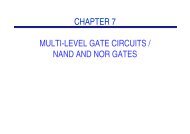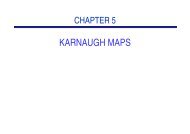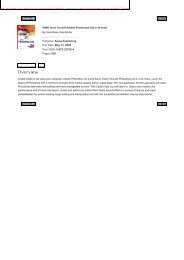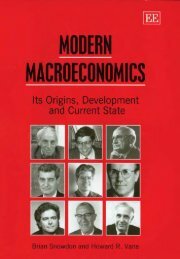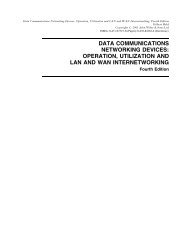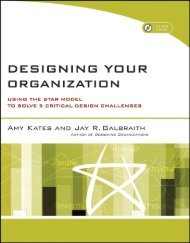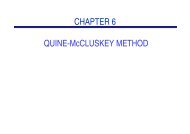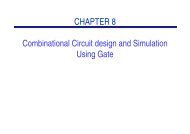The Economist December 1st 2007 - Online Public Access Catalog
The Economist December 1st 2007 - Online Public Access Catalog
The Economist December 1st 2007 - Online Public Access Catalog
- No tags were found...
Create successful ePaper yourself
Turn your PDF publications into a flip-book with our unique Google optimized e-Paper software.
German politicsLocal heroNov 29th <strong>2007</strong>From <strong>The</strong> <strong>Economist</strong> print edition“EXCUSE me, Mr President, but you are an asshole.” That is how Joschka Fischer, a pioneer member of parliament for theGreen Party, responded to a threat of ejection from the Bundestag, Germany's lower house, in a heated debate in 1984. MrFischer was duly made to leave the chamber. But the enfant terrible of German politics, who had been a revolutionary in1968, was able to shrug off his early hotheadedness and eventually take his place as foreign minister in Gerhard Schröder'sSocial-Democrat/Green coalition from 1998 to 2005. German politics has been a duller place since Mr Fischer left to teachand write.His beginnings were inauspicious: school drop-out, shoplifter, occasional taxi-driver. Buthis appetite for ideas drew him to the fringes of university life, in Stuttgart thenFrankfurt. Student protesters were on the march in Europe then, particularly in Germany,where the post-war generation was becoming increasingly exasperated by its elders'silence about the Nazi era. Revolution was needed. Some took it too far with acts ofterrorism, but Mr Fischer did not. His intervention, in 1976, in a notable address inFrankfurt's town square, probably saved the German peace movement from itssympathies with the Baader-Meinhof gang.Paul Hockenos, an American political analyst based in Berlin, argues consistently well thatthe Greens helped to break the complacency accompanying Germany's post-wareconomic miracle. Daniel Cohn-Bendit, Petra Kelly and Mr Fischer are the names mostclosely associated with the early Green movement, but it was Mr Fischer, with thepragmatism of the realo Greens, rather than the idealism of the fundi Greens, who tookthe party into responsible national government.At times it nearly died. In 1990 Green opposition to re-unification badly misread themood of the nation: in the first general election after re-unification it lost all its seats inwhat used to be West Germany. But within four years the Greens were back, with 7.3%of the vote and a following among the prosperous as well as the left.Red and green in tooth and clawHowever it was only after 1996, when Mr Fischer was left by his third wife and decided tolose weight, that the “Joschka effect” began really to take hold. In the 1998 election campaign the (by then) slim-line MrFischer travelled the country tirelessly in a green “Joschka bus” whipping up support. <strong>The</strong> Greens did so well compared withthe SPD that they earned three key portfolios in Mr Schröder's cabinet—foreign affairs, the environment and health.ReutersJoschka Fischer andthe Making of theBerlin Republic: AnAlternative Historyof Postwar GermanyBy Paul HockenosOxford University Press;400 pages; $35. To bepublished in Britain by OUPin FebruaryBuy it atAmazon.comAmazon.co.ukDie rot-grünenJahre: DeutscheAussenpolitik—vomKosovo bis zum 11.SeptemberBy Joschka FischerWithin weeks Mr Fischer was fighting for the coalition's future and his own position as party leader. This is where his newbook, “Die rot-grünen Jahre” (<strong>The</strong> red-green years), kicks in. NATO wanted Germany to join a proposed military strike onSerbia, which was reportedly backing genocide in Kosovo. It would be the first military action by German troops on foreignsoil since 1945—anathema to Germans brought up on the mantra “never again war”. With a rousing speech at a partycongress, and despite a direct hit by a bag of red paint, Mr Fischer took his party and his country to war.Mr Fischer recounts his experiences as foreign minister, the special relationship that he developed with Madeleine Albright,his American counterpart, and to some extent with Colin Powell, her successor, despite differences on Iraq. But he knew at once, for example, thathe would never get on with Dick Cheney, the American vice-president.Mr Fischer is most interesting when he recounts the human moments—squeaking with exasperation as he watched Bayern Munich lose toManchester United in the 9<strong>1st</strong> minute while he was on the phone to Ms Albright. Or when, despite the political incorrectness, he shook hands with aformer German terrorist in court, because they had once been mates. He also candidly admits that he would have preferred Oskar Lafontaine, amercurial leftist, to Mr Schröder as chancellor, and that he disliked many of his federal party colleagues. Mr Fischer's next book, which will coverthe time after September 11th 2001, may have more shape to it, since it will include the Iraq war and his exit from politics. But it would be usefulfor the Anglophone layman to read Mr Hockenos's book first.When Germany was asked in 2002 to join the “coalition of the willing” against Iraq, the government refused. <strong>The</strong> cynical view is that MessrsSchröder and Fischer faced probable defeat in the forthcoming election and had nothing to gain by joining in an unpopular war. But Mr Hockenosgives Mr Fischer credit for his toughness when challenged by Donald Rumsfeld, the American secretary of defence. “You have to make your case,”Mr Fischer insisted: “Sorry, you haven't convinced me.”Mr Hockenos is not always so kind. Mr Fischer as foreign minister could be “rude and overbearing” to his staff. But overall his book is anenlightening yarn about a local boy made good, who several times, by the skin of his teeth, saved his party, his government and his reputation.Joschka Fischer and the Making of the Berlin Republic: An Alternative History of Postwar Germany.By Paul Hockenos.Oxford University Press; 400 pages; $35. To be published in Britain by OUP in FebruaryDie rot-grünen Jahre: Deutsche Aussenpolitik—vom Kosovo bis zum 11. September.By Joschka Fischer.Kiepenheuer & Witsch; 444 pages; euro22.90Kiepenheuer & Witsch; 444pages; €22.90Buy it atAmazon.deCopyright © <strong>2007</strong> <strong>The</strong> <strong>Economist</strong> Newspaper and <strong>The</strong> <strong>Economist</strong> Group. All rights reserved.



